
Key Insights to Know About the Significance of Automated Test Management
Software testing today is a far cry from the software testing of the past and introduction of automation testing and automated test management has played a significant role in changing the face of software testing, as we know it today. While manual testing is still essential for many types of testing, businesses today simply cannot afford to stay away from implementing test automation. There are many reasons why test automation is essential for businesses to gain the competitive edge, and a highly competitive market and the need for continuous testing in line with Agile methodology, are some of the key reasons.
Picture this:
In the last 2 years alone, there has been an increase of 85% in the implementation of test automation globally.
This statistics by Forrester shows that there is an increasing trend for implementation of automation testing across the globe. Wondering why automation is so essential? Well, there are many reasons to it, but the most obvious one is the fact that the software applications are fast changing and the applications we have today are poles apart from that of the past. Today, there's an ever increasing market demand for applications to reinvent themselves frequently and keep on adding to their functionality through frequent app releases.
Did You Know?
The ecommerce giant Amazon has set a precedent of performing 50 million code releases a year!
As applications with more advanced features and functionality are coming up, there is also the need to come up with more advanced methods of testing. The advent of test automation has played a significant role in revolutionizing our approach to software testing.
Today, we have tools that are designed for end to end test management and not just automation testing. QARA Enterprise is an example of a comprehensive test management and automation tool that is designed to cater to the testing needs of every QA team. It is a suite of products, each one designed to help QA teams accelerate the automation process and achieve maximum results from the implementation of automation.
The advent as well as the rising popularity of concepts like Agile and DevOps means continuous developments in the products is fast becoming the norm, which calls for the need of continuous testing. Hence, it is no longer possible for QA teams to stick to manual testing alone, and automation has become the need of the hour. In this fast-paced environment, it is impossible for software products to keep up with the market demands without embracing automated test management.
How Far has Businesses Implemented Automated Test Management
At least 7 out of every 10 businesses across the globe have implemented test automation, and also the percentage of automation in a project was found to be significantly high. The graph below showcases the percentage of businesses that have implemented automated test management versus the ones that plan to do so in near future.
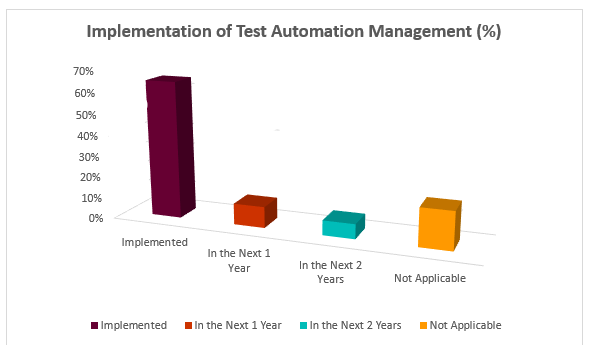
Now, here's a graph that highlights what fraction (in percentage) of the entire testing project is automated, and how. So, more than half of the organizations have implemented at least 50% automation of their testing process, and studies indicate this will rise substantially in the near future.
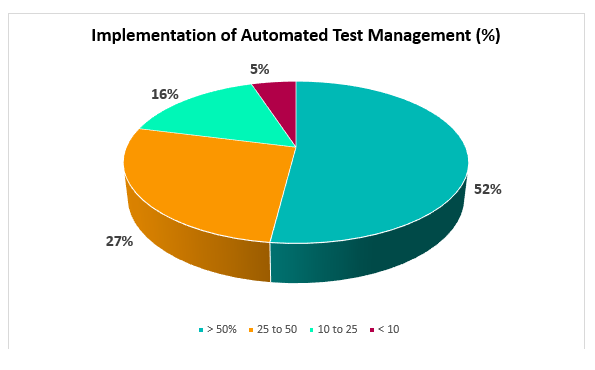
So, that was about the need for automated test management and how far the organizations across the globe have implemented it. That being impressive, let us now move on to have a look at the geographical regions across the globe that have favoured automated test management the most. Are you ready?
Region Wise Implementation of Automated Test Management
Given below is a graph that showcases the automated test management market share by geographical region. Here we see that North America has the largest market for automated test management in the world (42%), followed by Europe (29%) and Asia Pacific (17%).
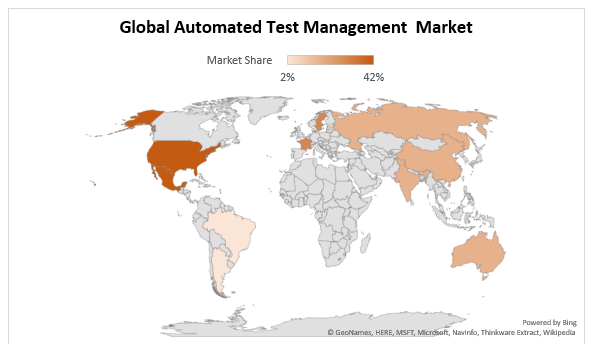
Did You Know?
51% QA professionals believe high percentage of automation implemented indicates a very successful testing approach.
After understanding the extent to which automated test management has been successfully implemented in enterprises across the globe, let us dig a little deeper to find out the types of tests that are being prioritized for automation.
Types of Testing and their Extent of Automation
When it comes to the testing types that are automated the most, regression testing wins hands down with a staggering 87%, and it is followed by the automation of repeated test cases and load testing.
Did You Know?
Close to 55% of organizations follow a Decentralized automated test management strategy, which means there are multiple QA teams in an organization, and each of the QA teams are assigned a different project.
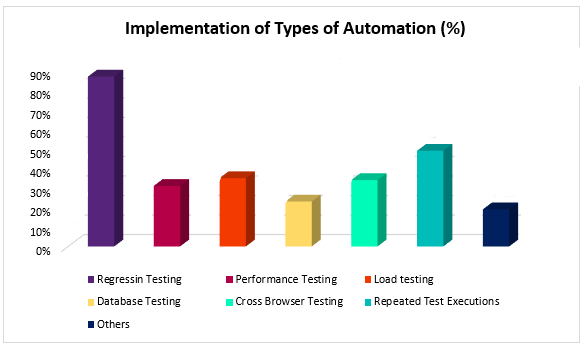
After having a look at data and insights that showcase the details about automated test management, and the approach organizations have towards it, we now move to the benefits of automated test management. Does automated test management really have any significant benefits for the organization as well as the QA teams?
Understanding the Key Benefits of Automated Test Management
Talking about the biggest benefits of automated test management, boost in efficiency is the biggest benefit, followed by early detection of bugs and better test coverage.
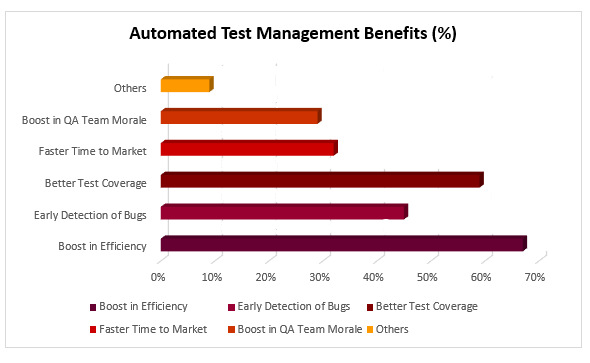
Did You Know?
65% of QA professionals believe the automation of functional testing can be the biggest contributor towards reduction of manual testing efforts.
However, surprisingly enough, 75% or more of the cumulative functional test executions across the globe, are still conducted manually!!
Future of Automated Test Management Implementation
Before we wrap up, let's have a look at the future trends for the automated test management market, based on the revenue generated.
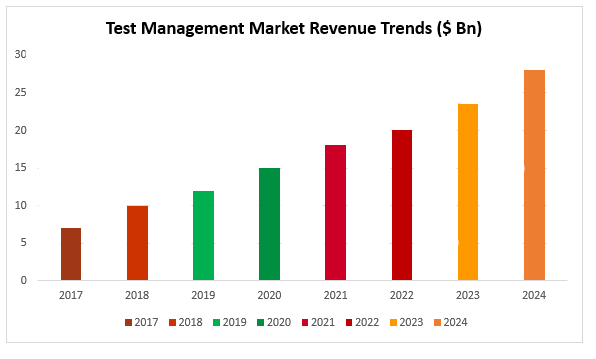
So, that was about some of the key insights about automated test management, the extent of its implementation, and what the next few years hold in store. The future of automated test management holds endless possibilities with new technologies like AI and IoT all set to enter the domain.
(Sources: QA Blog, Markets & Markets, QA Symphony, GM Insights, World Quality Report, Sauce Labs)
